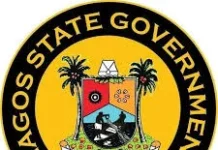Afenifere, Ohanaeze insist on implementation
As the agitation for the implementation of reports of the 2014 National Conference and the Governor Nasir El-Rufai Committee rages, the main Northern socio-cultural groups in Nigeria, Arewa Consultative Forum (ACF), has again expressed its objection to any attempt to retable the recommendations.
But their counterparts in South, Afenifere from the South-west, and Ohanaeze Ndigbo from the South-east, have disagreed, insisting that the way out of the several challenges facing the country is to look at the reports that had recommended the review of the structure of the federation.
Secretary General of ACF, Mr. Anthony Sani has stated that neither the report of the 2014 conference nor that of the All Progressives Congress (APC) committee, headed by Kaduna State Governor, Mallam Nasir el-Rufai, should be implemented.
Sani said both the conference and the el-Rufai committee lacked the electoral mandate to birth far-reaching reforms in the country’s multi-party democracy.
Sani said while there might be national consensus among Nigerians on the problems facing the country, there was none on methods of solving them.
According to him, only a political party that fancies the reports may choose to include some aspects of in its manifesto to get the support of Nigerians.
“None of the reports can be implemented precisely because both the confab and Governor el-Rufai committee lacked the electoral mandate needed for foisting far-reaching reforms on the nation in a multi- party democracy.
He said: “I have said it over and over again that while there may be national consensus on the problems afflicting the nation, there is no similar national consensus on methods of solution.
“Hence the significance of multi-party democracy, which allows each of the political parties to proffer solutions as reflected in its manifesto that the party uses to canvass for the electoral mandate needed for the implementation.
“If any of the political parties fancies any of the reports or parts of the reports, it has the right to lift what it wants from the reports and include it in its manifesto and canvass for the needed electoral mandate.”
He added that by doing so, the campaigns would bring into the open the pros and cons of restructuring by enlightening the voters to understand it for informed voting.
He added: “To do otherwise is anti-democratic. APC set up Governor el-Rufai’s committee after the party had won elections for its first tenure.
This means after APC had won the elections with specific mandate, it wanted the committee to go to Nigerians and seek approval to restructure the country outside the electoral mandate.
“That is not how democracy works.”
It would therefore be morally preposterous for APC government to implement the reports submitted by El-Rufai Committee.”
Afenifere Wants 2014 Confab Implemented
However, Afenifere, the pan-Yoruba socio-cultural organisation, differed from the ACF and backed last week’s call by former President Goodluck Jonathan that President Muhammadu Buhari should implement the recommendations of the 2014 National Conference.
Afenifere said the federal government should re-visit and implement the 2014 conference recommendations.
But it rejected the el-Rufai committee report, which Afenifere’s National Publicity Secretary, Mr. Yinka Odumakin, said would not achieve the objectives of the 2014 national conference.
He said: “the 2014 national conference report makes more sense than el-Rufai’s committee. El-Rufai’s committee is just a party committee; national conference 2014 was a conference of Nigerians, 493 delegates across the whole country, sat for three months. What is in el-Rufai committee?
“If they are serious, we have enough material in the 2014 national conference to remake the country. So, talking about el-Rufai’s committee now is a waste of time. And the country is disappearing on daily basis. What is left of the country now only God can salvage it. Any minute that is wasted now is a loss of time.
“A time is coming when even if they carry restructuring, people would say ‘no, we don’t want again.’ If they don’t take the opportunity and do it when there is still a chance.”
We Stand by Awka Declaration Says Ohanaeze
On its part, Ohanaeze said it was for restructuring and it stood by its Awka declaration on the issue.
President General of the organisation, Chief Nnia Nwodo at the weekend stated that the group remained totally committed to the resolutions it reached during the all Igbo conference in Awka, Anambra State, on May 21, 2018.
“I am under obligation to continue to champion the interest of Ndigbo who gave me their mandate to lead them. It was a gathering of Ndigbo. Our governors, legislators both at state and national level, captains of industry, the academia, traditional and religious leaders, students, men and women from every part of Igbo land were present. I stand by that decision as far as this issue of restructuring is concerned,” he said.
At the conference tagged “Awka Declaration,” Ohanaeze Ndigbo, led Igbo political, religious and traditional leaders in the South-east to adopt an Igbo position on the restructuring of the country.
The gathering at Awka also attracted leaders of the South-west, Middle Belt, South-south and compatriots from Southern Kaduna.
Former Governor of Central Bank of Nigeria (CBN), Prof. Charles Soludo, presented a 10-point demand that included resource control, regional government based on the six existing geo political zones, fiscal federalism, devolution of power, additional state for the South-east before further creation of states, removal of local government creation and funding from the federal government, rotational presidency, six year single term with six vice-presidents, among others. Some of these issues were contained in the recommendations of the 2014 national conference.
Source: THISDAY










